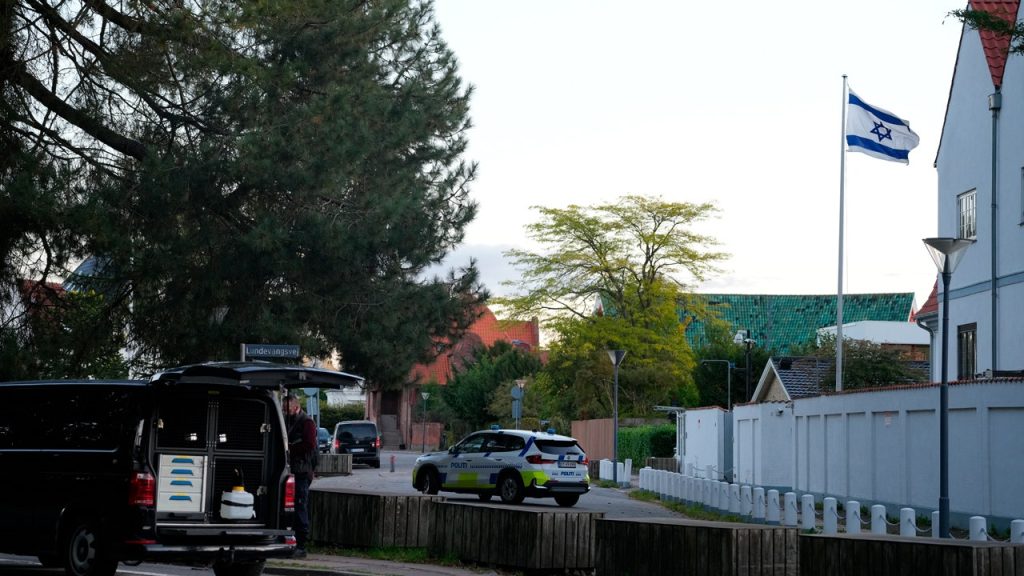Two Swedish teenagers have been jailed in pre-trial detention in connection with two explosions near the Israeli Embassy in Copenhagen, with investigators looking into whether the motive could be a terror attack. The blasts occurred early in the morning in a neighborhood with several foreign diplomatic missions, causing damage to a nearby house but with no injuries reported. The suspects, who cannot be identified, faced preliminary charges of possessing illegal weapons and carrying five hand grenades, two of which exploded when thrown at a house near the embassy. A third suspect, aged 19, was also arrested but later released.
The suspects denied the charges during a closed-door court hearing where they were ordered to be held for 27 days. Danish authorities believe the teenagers were acting in association and together with one or more perpetrators. The arrests took place shortly before noon on a train at Copenhagen’s central station, with photos circulating in the media of one suspect in a hazmat suit being taken into custody. In a separate incident in Stockholm, shots were fired at the Israeli Embassy, but no arrests have been made. Swedish authorities have connected this incident to Iran, with the Swedish domestic security agency accusing Iran of using criminal networks in Sweden to target Israeli or Jewish individuals.
The Danish domestic security service, PET, expressed concern over the potential for similar actions targeting Jewish sites in Denmark if the involvement of state actors continues. In response to the incidents, European leaders have weighed in on the issue of illegal immigration, emphasizing the need to stop criminal actions targeting specific groups. The explosions near the Israeli Embassy in Copenhagen occurred in a neighborhood with several diplomatic missions, prompting concerns about the safety and security of foreign embassies in the area. The suspects, aged 16 and 19, are facing charges of possessing illegal weapons and carrying out the attacks with hand grenades.
In Sweden, the authorities are investigating the incident at the Israeli Embassy in Stockholm as aggravated weapons offenses rather than a terrorist crime. The involvement of Iranian proxies using criminal networks to target Jewish individuals has raised concerns about the potential for similar attacks in neighboring countries. The connection between state actors and young criminals carrying out actions against Jewish targets highlights the need for increased security measures and vigilance. The incidents in both Copenhagen and Stockholm underscore the importance of coordinated efforts among European nations to combat terrorism and protect diplomatic missions and minority groups.















